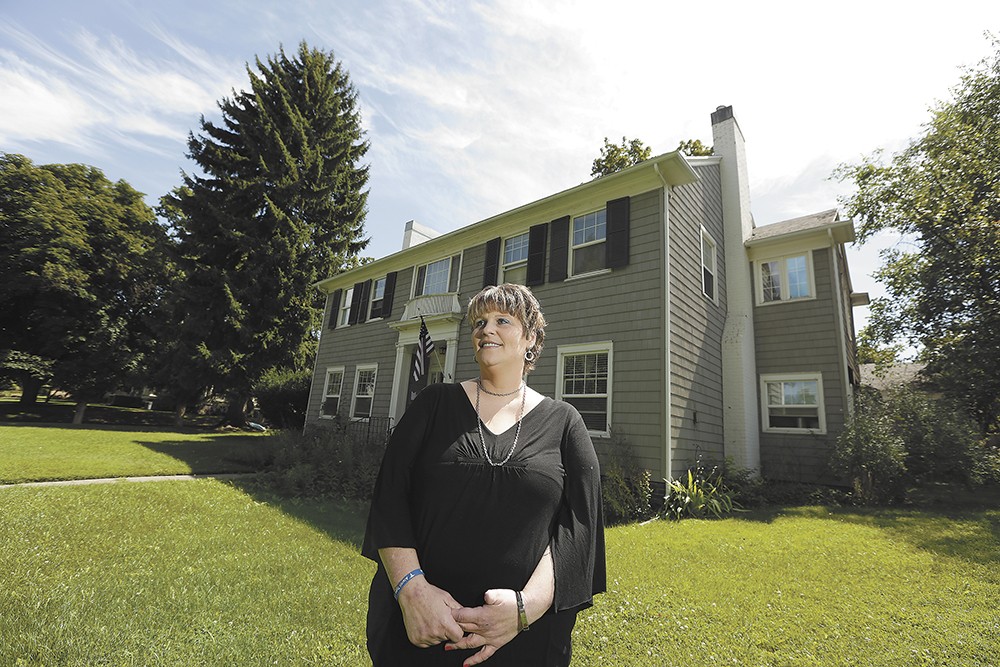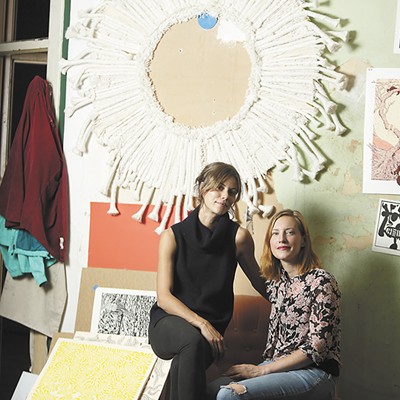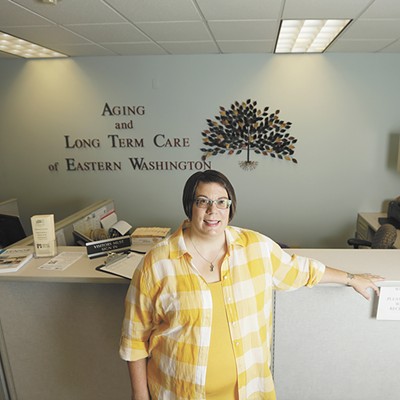
In Spokane and Washington state, it's getting harder to find a place to call home — especially if you're of more modest means.
Last year, the Washington State Department of Commerce released a report finding that 24,515 households, or 13 percent of Spokane County's households, pay more than half of their income for rent. The report also found that there are only 12 units of affordable housing for every 100 households that make less than 30 percent of the area's median income.
The U.S. Department of Housing and Urban Development has decreased funding for housing production. Meanwhile, Spokane is experiencing a housing crunch as parts of the city gentrify.
But housing nonprofits in Spokane are working to find ways to put roofs over the heads of people who need them most.
IN TRANSITION
When Kimberly Hoskin completed a drug treatment program for her addiction to methamphetamine, she felt triumphant that she was finally clean. But Hoskin, who moved from Tacoma to Spokane for inpatient treatment, says that triumph was mixed with fear.
"It was terrifying," she recalls. "I didn't want to go to Tacoma because I knew it would be too easy for a relapse, and I didn't know anything about Spokane."
After talking to a case manager, she was accepted at Miryam's House, a housing facility and program for women like her. It's run by Transitions, a Spokane-based nonprofit that provides transitional housing and services for women fleeing domestic violence, getting out of prison or in need of a place to stay after finishing a substance abuse or psychiatric treatment program, according to Mary Tracey, the organization's director of development. Tracey says the program gives these women a place to stay while finding jobs, services and education, as well as permanent housing
At Miryam's House, a two-story residence on the lower South Hill, Hoskin moved into a clean, butterfly-themed room complete with fresh towels and toiletries. There's an on-site counselor and support groups that Hoskin participated in, along with nine other women living there.
"Living here was a dream," says Hoskin, who found an apartment a year after entering Miryam's House. "It just didn't seem real to me."
In May, Transitions and YWCA of Spokane (another provider of transitional housing) announced that they would lose $233,217 in HUD funding. Tracey says they've had to lay off a staff member and are taking more formerly incarcerated women, whose housing is subsidized by the state, rather than domestic violence survivors. Transitions is running at a deficit, she says, and could have to cut housing units if the situation persists, jeopardizing its unique role among Spokane housing nonprofits.
VENTURE TO BUILD
More than 20 years ago, Spokane Housing Ventures was founded as a nonprofit to work through the complexity surrounding a very simple goal: building affordable housing.
Crystal Hillier, chief financial officer for SHV, says that in the 1970s, a housing developer could apply to HUD for financing for affordable housing. Now, she says, that's changed.
"In today's development world, you have to get city funding to leverage county funding to apply for state funding, and then you maybe get a private investor that's interested in a tax credit," she says. All of these different sources of funding, she says, often have different requirements for housing different populations (i.e., chronically homeless, disabled people, etc.). It's SHV's job to thread that needle, says Hillier, because private developers, averse to red tape and expecting a bigger return, are less likely to build this much-needed housing.
In Spokane County, SHV operates 740 units that provide housing to vulnerable populations such as seniors, as well as people making less than the area's median income. Spokane is currently experiencing a shortage of affordable housing, and the market's low vacancy rate means fewer options and higher rents. Hillier says that SHV is insulated from these pressures, even reducing rents in some units. She says it has more developments planned.
"We can take you straight off the streets, and we can house you all through your life," she says.
NEW OLD HOMES
When Sarff Investments bought a block in West Central last year, intending to clear the 13 historic homes located there to make way for a car wash, it raised concerns that the development would cut into the neighborhood's affordable housing stock at a time when it's starting to gentrify. Sarff offered to give the houses to anyone who could lift them up and move them.
The Grove Community, a new nonprofit, is planning to use these buildings to provide affordable housing in West Central, says Deb Conklin, a local pastor who serves on its board. Conklin says that the nonprofit has secured lots for five houses and one has already been moved.
"The gentrification pressure from Kendall Yards has already started," says Conklin.
She says that the Grove Community will rent out rooms in the houses at an affordable rate, allowing people of more modest means to reside in a neighborhood where property values are rising. She says that three houses will include apartments for families. The lots where the houses are moved also will have raised beds, she says, so tenants can grow their own food.
But Conklin says her group has run into some complications in moving the houses that need to be resolved soon.
"There are a lot of moving pieces that have to happen to move a house," she says.
HOME OF THEIR OWN
Buying your own house is considered a reliable way to build wealth. But finding the cash for a down payment, getting an affordable mortgage and wading through the mounds of paperwork associated with the purchase can be daunting. Fortunately there are nonprofits in Spokane that'll hold your hand as you take the plunge.
Community Frameworks, an affordable housing nonprofit that has offices in Spokane and Bremerton, offers a program to help individuals and households making 80 percent of the area's median income buy their first home from the organization's portfolio of houses. For a household of two that's around $41,000 a year, says Mark Wilson, a housing developer for Community Frameworks.
"It enables people to get into homeownership who otherwise wouldn't be able to," says Wilson, a housing developer for Community Frameworks. The program requires participants to take a homebuyer education course and also put in about 50 hours of sweat equity into the house. "We provide down payment assistance, that gets most people's attention," says Wilson.
Spokane Neighborhood Action Partners, another local nonprofit, offers a similar program that helps people overcome barriers to homeownership. It provides counselors and classes that direct participants to special loan programs. SNAP also offers loans of $10,000 that help households at 80 percent area median income get into their own house.
The Spokane affiliate of Habitat for Humanity runs a program that helps families living in subsidized, overcrowded or substandard housing get into a place of their own by purchasing a house at cost, with no interest, from the nonprofit. The program, which requires families to contribute 500 hours of "sweat equity" and take a course on homeownership, is geared toward families whose income falls between 25 to 60 percent of area median income.
"Sometimes families are living in a shelter or on a neighbor's couch," says Michelle Girardot, the nonprofit's chief executive officer. But after they get their own home, she says they're empowered and can start building wealth. ♦




















